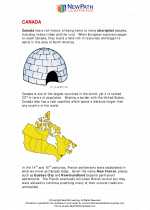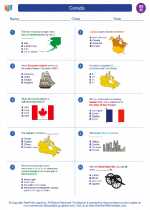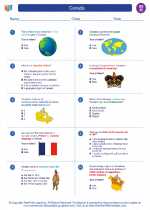Study Guide: The History and Culture of Iraq
Let's explore the rich history and culture of Iraq, a country with a fascinating past and a complex present.
Geography and Location
Iraq is located in the Middle East, bordered by Turkey to the north, Iran to the east, Kuwait to the southeast, Saudi Arabia to the south, Jordan to the west, and Syria to the northwest. The Tigris and Euphrates rivers flow through Iraq, providing fertile land for agriculture.
History
Ancient Mesopotamia, located in what is now Iraq, was one of the cradles of civilization. It was home to the Sumerian, Akkadian, Babylonian, and Assyrian empires, making it one of the oldest continuous civilizations in the world. Iraq has a complex history, including the Islamic Golden Age, Ottoman rule, and British colonial influence.
Key Historical Events
- Sumerian Civilization: The Sumerians established one of the earliest known civilizations in Mesopotamia, known for their advanced city-states and innovations like writing.
- Islamic Golden Age: During the Abbasid Caliphate, Baghdad was a center of learning, art, and science, making significant contributions to human knowledge.
- Modern Era: Iraq gained independence from British mandate in 1932, experienced periods of monarchy, military coups, and the Ba'athist regime under Saddam Hussein.
- Recent History: The Gulf War, Iraq War, and ongoing conflicts have significantly impacted the country and its people.
Culture and Society
Iraq has a diverse cultural heritage, with influences from ancient Mesopotamia, Islamic traditions, and the broader Arab world. Arabic is the official language, and Islam is the predominant religion, shaping many aspects of daily life and social customs.
Art, Literature, and Cuisine
From ancient Mesopotamian art to modern Iraqi literature, the country has a rich artistic and literary tradition. Iraqi cuisine is known for its use of spices, lamb, rice, and flatbread, reflecting its history and geography.
Challenges and Resilience
Despite its rich history, Iraq has faced significant challenges, including political instability, sectarian tensions, and the impact of wars and conflicts. However, the people of Iraq have demonstrated resilience and a strong sense of national identity.
Further Study
For a deeper understanding of Iraq's history and culture, consider exploring primary sources, scholarly articles, and first-hand accounts from Iraqi individuals. Engaging with diverse perspectives can provide a more nuanced view of this complex and vibrant society.
By understanding the history and culture of Iraq, we can gain insights into the broader dynamics of the Middle East and the interconnectedness of global societies.
[Iraq] Related Worksheets and Study Guides:
.◂Social Studies Worksheets and Study Guides Eighth Grade. Canada

 Worksheet/Answer key
Worksheet/Answer key
 Worksheet/Answer key
Worksheet/Answer key
 Worksheet/Answer key
Worksheet/Answer key
 Worksheet/Answer key
Worksheet/Answer key
